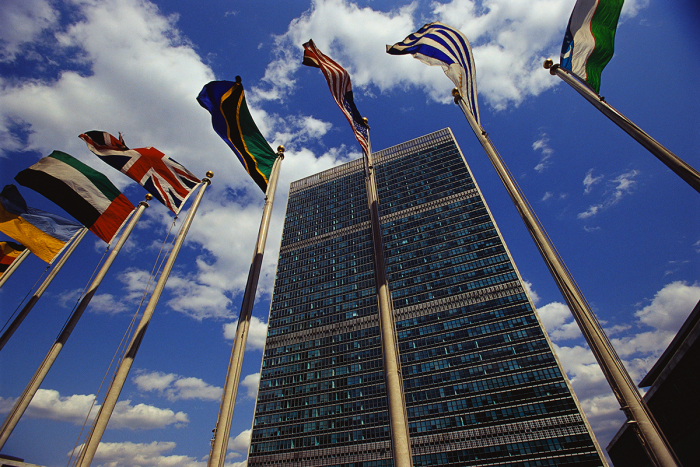UN office suggests 'unsafe abortions' count as 'femicide,' accused of ignoring legal abortion deaths

The United Nations has been accused of promoting a political agenda after the organization's Western European regional office suggested that the definition of "femicide," the intentional murder of women, should include deaths from unsafe abortions.
In response to the issue of violence against women, the U.N. advertised the "16 Days of Activism against Gender-Based Violence" campaign, which ran from Nov. 25 to Dec. 10. The campaign begins on the International Day for the Elimination of Violence against Women and ends on Human Rights Day.
On the campaign's first day, the U.N. Regional Information Centre for Western Europe shared an article titled, "Behind closed doors: the deadly reality of femicide." The U.N. regional office stated that 85,000 women and girls lost their lives due to femicide in 2023, but the actual number is unknown due to underreporting.
The article described femicide as "the killing of a woman by an intimate partner and the death of a woman as a result of a practice that is harmful to women." The organization suggested that the concept of harmful practices can apply to unsafe abortions.
"These practices include, but are not limited to, intimate partner violence, dowry-related deaths, honour killings, and deaths related to harmful practices like female genital mutilation or unsafe abortion," the report stated.
Michael New, an assistant professor of social research at The Catholic University of America and a senior associate scholar at the pro-life research organization Charlotte Lozier Institute, said the definition of femicide should not include deaths from unsafe abortions.
The pro-life researcher told The Christian Post the word "femicide" refers to the intentional killing of women, citing honor killings, sex-selective abortions and intimate partner violence as examples.
New believes the death of any woman as a result of an unsafe abortion, while tragic, is not an action that involves the intentional killing of a woman. Therefore, he says such deaths are not consistent with the definition of femicide.
"There is obviously a political motive behind the U.N.'s interest in including unsafe abortions in the definition of femicide," he said. "The United Nations supports legal abortion. They have criticized Poland and other countries that have enacted legal protections for preborn children."
Pro-life advocates and doctors have noted that Poland, a country that prohibits abortion in most cases, has some of the lowest maternal mortality rates in the world.
Earlier this year, the U.N. Committee on the Elimination of Discrimination against Women accused Poland of "severe human rights violations," pointing to the country's laws against abortion.
The CEDAW advocated for legal reforms to fully legalize abortion in Poland, claiming that the country's restrictions have "contributed to several preventable deaths."
"The United Nations and other organizations that support legal abortion have always used inflated numbers of deaths and complications due to illegal abortions to generate political support for permissive abortion policies worldwide," said New, adding that the U.N. has expressed little interest in accurate data on deaths and complications from legal abortions.
The U.N. did not immediately respond to The Christian Post's request for comment.
New and other pro-life advocates have frequently criticized the lack of comprehensive data on abortion complications, particularly in the United States, which does not have a federal abortion reporting law.
As these advocates have noted, the U.S. Centers for Disease Control and Prevention, which collects data on abortion, states on its website that the process is largely voluntary. Another entity that collects abortion data is the pro-choice Guttmacher Institute, but advocates have concerns about bias due to the organization's ties to the nation's largest abortion provider Planned Parenthood.
In 2016, the U.S. Food and Drug Administration also eliminated a requirement for abortionists to report non-fatal chemical abortion complications, which pro-life advocates contend makes it harder to locate accurate data.
"The United Nations has never criticized the United States for our lack of comprehensive data on deaths and complications due to legal abortion," New stated.
Samantha Kamman is a reporter for The Christian Post. She can be reached at: samantha.kamman@christianpost.com. Follow her on Twitter: @Samantha_Kamman





























